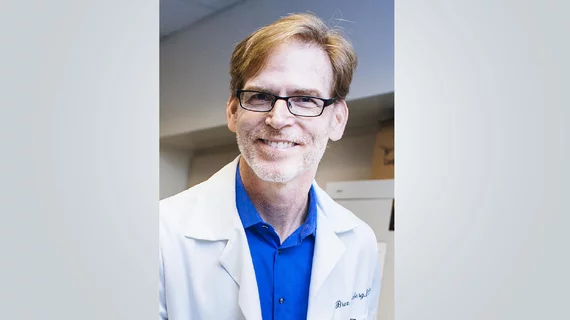Bruce J. Tromberg begins term as director of NIBIB
The National Institutes of Health (NIH) has administered the oath of office to Bruce J. Tromberg, PhD, the new director of the National Institute of Biomedical Imaging and Bioengineering (NIBIB).
In this role, Tromberg will oversee the NIBIB’s $378 million annual budget, which is allocated to NIH-operated laboratories and granted for research to more than 800 national and international universities.
“Bruce brings substantial experience in biophotonics and demonstrated his commitment to state-of-the-art imaging and bioengineering technologies through his research and leadership on numerous advisory committees, including the NIBIB National Advisory Council,” said Francis Collins, MD, PhD, director of the NIH, in a prepared statement.
Tromberg previously served as a professor in the departments of biomedical engineering and surgery at the University of California at Irvine (UCI) and is lauded as a “pioneering leader” in biophotonics. He also led UCI’s Beckman Laser Institute and Medical Clinic, a research, teaching and clinical facility for optics and photonics in biology and medicine.
Tromberg has conducted NIH research and served as the principal investigator (PI) for several NIH grants. He served as the PI for the Laser Microbeam and Medical Program (MAMMP) for two decades. From 2012-2016, he provided expertise to the NIBIB National Advisory Council. Additionally, Tromberg has co-authored more than 450 publications and obtained 18 patents for biophotonics technologies in cancer, neuroscience and vascular disease.
Tromberg was first chosen for the position back in September 2018.

